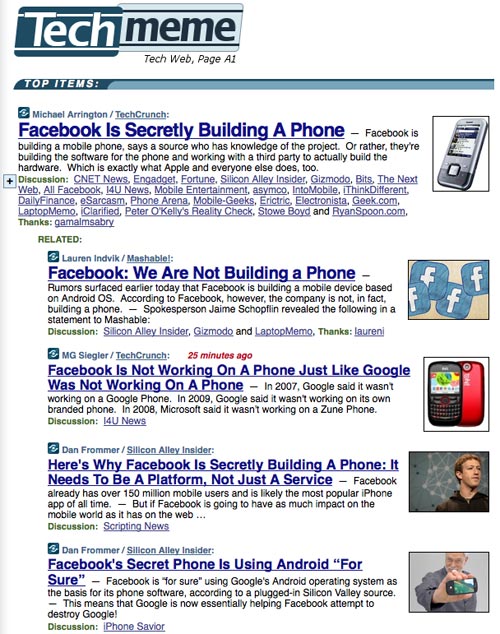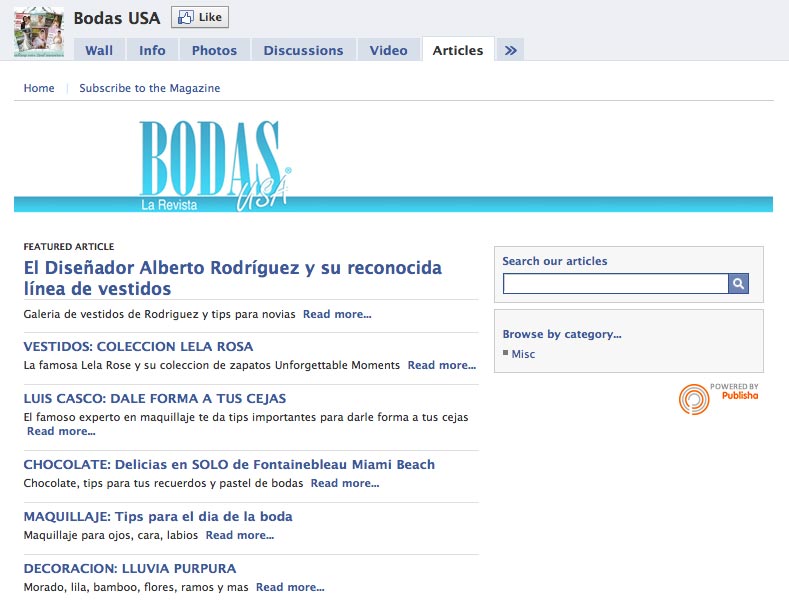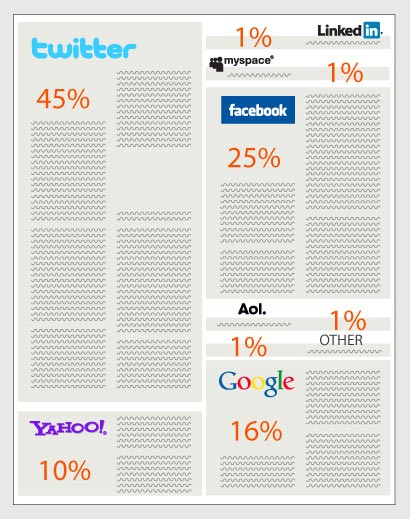Rumours of Google’s new social network are flying this week. The BNET Technology blog has some thoughtful speculation about its form here.
What will it look like? What elements of existing Google products will it incorporate? And how much control will users have over their profile information and data?
But what’s of interest to me was captured in a tweet by Adam Ostrow, editor-in-chief at Mashable – journalists and anyone interested in protecting email contacts data should take note:
Google’s supposed new social network will be doomed unless they start over from scratch on the contact/friends list.
Another Twitter user, Marshall Haas (@marshallhaas), asked him why it was a problem; Ostrow answered:
“Same problem as Buzz … Gmail’s contact list isn’t an accurate definition of who my ‘friends’ are. At all.”
He’s talking about automated ‘friend’-making systems, in which Gmail contacts (i.e. email address book data) are automatically connected to you in a new system – as originally happened with Google Buzz.
Many users were not happy to see private email connections made public via Buzz; an issue Google quickly addressed. When developing its new connection tools for the new social network, Google would do well to remember the furore it faced over auto-friending in Buzz.
On a related topic, a few months ago Journalism.co.uk examined the practice of address book importing, in which social networks use members’ email address books to make connections between users and issue invitations.
As we reported, tools used by social networks to harvest new members can threaten the privacy of confidential sources and put journalists’ careers in jeopardy.
We tested out various services we showed that by using someone’s email address book data, a social network can link users publicly, risking source exposure.
Facebook, the social network on which we focused most of our attention, concerned us with its use of users’ data and descriptions of systems were muddled. We called on Facebook to make their systems clearer.
Facebook’s European policy director Richard Allan later told us: “[I]f somebody were a journalist with a professional [contacts] list, it would make sense for them clearly not to use any of these address book importers at all”.
In subsequent email correspondence with Facebook’s public relations team, I was told that for some users (who wish to import an email address list, but not reveal certain contacts): “… it may be better to upload your contacts from an Excel sheet or similar so you can remove ones you don’t wish to upload”.
While concerned about Facebook’s unclear and potentially misleading settings around address book importing and recommendations, we were impressed by the effort they made to answer our enquiries and we’ll be watching to see how they develop their systems.
Interestingly, this week I received this message from Twitter, in my inbox:
XXX knows your email address: YYY@googlemail.com. But Twitter can’t suggest you to users like XXX because your account (@YYY) isn’t configured to let users find you if they know your email address.
It then provided a helpful button to allow me to: “Review & confirm your settings”.
To explain: a friend (XXX) has shared her address book and Twitter has matched my email address to an unused Twitter account I hold (@YYY). I am then given the option to connect with this person, or open up my account to email address matching. i.e. I have to opt *in* to her sharing of email address book data.
It’s curious because in the past, I’ve received follows from people in my email address book to this same Twitter account – an account, I should add, that’s not in my name. I’m surprised therefore they found it without importing their email addresses, but I don’t know this for certain. With only four followers to this account, it seems unlikely two of them should be in my address book!
Anyway, in my case, it wasn’t important whether they followed me via this unused account or not, but anonymous bloggers out there (public service workers or political dissidents for example) should be careful to *never* use their real email addresses when registering social network accounts. Even if the account is in a different name, and the email address is private, the connection can still be made.
For a journalist, Twitter’s new alert system is good news. Twitter may not have answered any of Journalism.co.uk’s numerous enquiries about its address book importing methods, but at least it is developing techniques to allow users to make informed choices about who and how they connect with contacts with whom they have exchanged emails.
Has Twitter changed its ABI system? Did it read Journalism.co.uk’s initial enquiries outlining our concerns? I’ve sent the press people a line, but I’m not holding my breath.
I also contacted Google to ask about the rumoured network and whether Gmail address book data will be used for building membership. The spokesperson’s comment? Simply: “We do not comment on rumour or speculation”.


